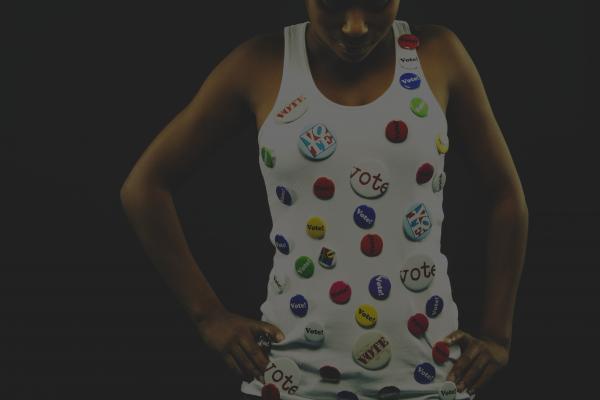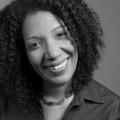Sep 15, 2015
In 1851, attendees of a feminist convention gathered in a packed hall in Akron, Ohio. It was a time when — even in the midst of a fight for women’s rights — mostly men spoke. They talked of dainty women — delicate and deserving of special protection.
Sojourner Truth sat in their midst. Miss Truth sat quiet, listening to men fill space with empty arguments about why women should or should not have the vote. Finally, she rose to speak and a visceral wall of hostility rose from the masses to greet her. The voice of this "n___ger woman" could muddy the message, they hissed. It could conflate the movement for women’s equality with the abolitionist movement — and that would be the death of suffrage, they feared.
But, as Dr. King liked to quote, “Truth crushed to earth will rise again.”
And so Truth rose, laid her bonnet beside her feet, and spoke the words.
“That man over there says that women need to be helped into carriages and lifted over ditches, and to have the best place everywhere,” Truth said.
“Nobody ever helps me into carriages, or over mud puddles, or gives me any best place! And ain’t I a woman?”
The answer was yes. Truth was a woman — deserving of every bit of respect and protection that white men afforded to white women. But it never came, because her skin was black. The white men and women of the suffrage movement would rather have excluded Sojourner Truth and the other black women leaders of the suffragist movement from their ranks than risk a muddied message — a message too complex for simple minds, perhaps; a message too threatening to white power — the intersectional message of black female dignity and the sin against it.
So most Americans have never heard of Margaretta Forten, Harriet Forten Purvis, Sarah Forten, and Mary Ann Shaddy Cary, who wrote, organized, and led organizations from the 1830s through the 1870s dedicated to the causes of abolition and women’s suffrage.
Most Americans have never heard of Mary Church Terrell who organized the National Association of Colored Women (NACW) in 1896, with women’s suffrage as one of its core commitments.
And, while many Americans know of Ida B. Wells for her anti-lynching campaign, they don’t know she also founded the Alpha Suffrage Club in 1913 — the same year that Alice Paul and Lucy Burns founded the Congressional Union for Woman Suffrage (CU) and convened the historic Suffrage March in Washington, D.C.
And even most feminists today don’t know that black suffragists were directed to march separately in Paul’s parade. Ida B. Wells refused, and slipped into her state’s delegation in the middle of the parade. The only reason we know Wells was present that day is because she marched with the white women.
Being erased from the annals of history is commonplace for black women — not only by white men and women, but also by black men. Black women were directed to march separately from the men during the 1963 March on Washington. And only one woman spoke from the podium over the course of an entire day.
Things haven’t changed. Since the death of Michael Brown the roll call of black people killed by police has become familiar: #MichaelBrown, #EricGarner, #JohnCrawford, #TamirRice, #WalterScott, #FreddieGray. Too often, the women are missing.
“When you bring women to the narrative, it very much complicates our understanding of what police violence is and actually builds a much more structural-based argument around the problem,” Associate director of the African American Policy Forum (AAPF), Rachel Gilmer, told the Huffington Post.
AAPF co-founder, Kimberlé Crenshaw, added:
“To put it simply, if these lives and stories aren’t widely recognized, they won’t be remembered and police reform will be incomplete.”
The #SayHerName campaign rose up to demand that the lives, dignity, and denigration of black women’s lives be acknowledged. #SayHerName demands the inclusion of the names of women killed by police or in police custody among the roll call of the dead.
A 130-pound Natasha McKenna struggled under the weight of several officers who stunned her naked body with a Taser four times in 17 minutes in Fairfax County, Va. McKenna fell unconscious upon arrival to the hospital, and died 5 days later. Officer Eric Casebolt drew his gun on a 14-year-old bikini-clad girl, then manhandled her, threw her to the ground, and kneeled on her back as she cried for her mother. In the wake of the slaughter of the Emanuel AME Nine in Charleston, S.C., and the subsequent removal of Confederate flags across the south, six black women died while in police custody throughout the month of July. Last week, India Krager became the latest life of a black woman snuffed out, and it happened within 15 seconds of interaction with four white Virginia Beach officers — while her 4-month-old baby sat in the car seat behind her.
And the blood of these dead cry out: “Ain’t we women?!”
Most of us could not imagine a male police officer manhandling a bikini-clad white girl — pulling a gun on her, wrestling her to the ground, and kneeling on her back like Casebolt did to the little girl at the pool party in Texas.
Most of us could not imagine a male officer pulling a Taser on a suburban white woman because she asked why she had to put out her cigarette; then slamming her to ground, kneeling on her back, and taking her into custody because she failed to use a turn signal.
Why? Because, as the men said in Sojourner Truth’s day, “Women need to be helped … and lifted … and to have the best … everywhere.”
And breastmilk clings to concrete and cries out, “Ain’t we women?!”
Yes. You are.
And so we speak your names. We recognize your dignity. We honor the power of your femininity. We lament the tragedy of your suffering and we promise never to erase you again.
#TanishaAnderson, #RekiaBoyd, #MiriamCarey, #MichelleCusseaux, #ShellyFrey, #KaylaMoore, #YvetteSmith, #DarneshaHarris, #MalissaWilliams, #AlesiaThomas, #ShantelDavis, #ShereeseFrancis, #AiyanaStanleyJones, #TarikaWilson, #KathrynJohnston, #AlbertaSpruill, #KendraJames, #NatashaMcKenna, #MeaganHockaday, #JanishaFonville, #SandraBland, #KindraChapman, #JoyceCurnell, #RalkinaJones, #RaynetteTurner, #IndiaKager …
Got something to say about what you're reading? We value your feedback!

